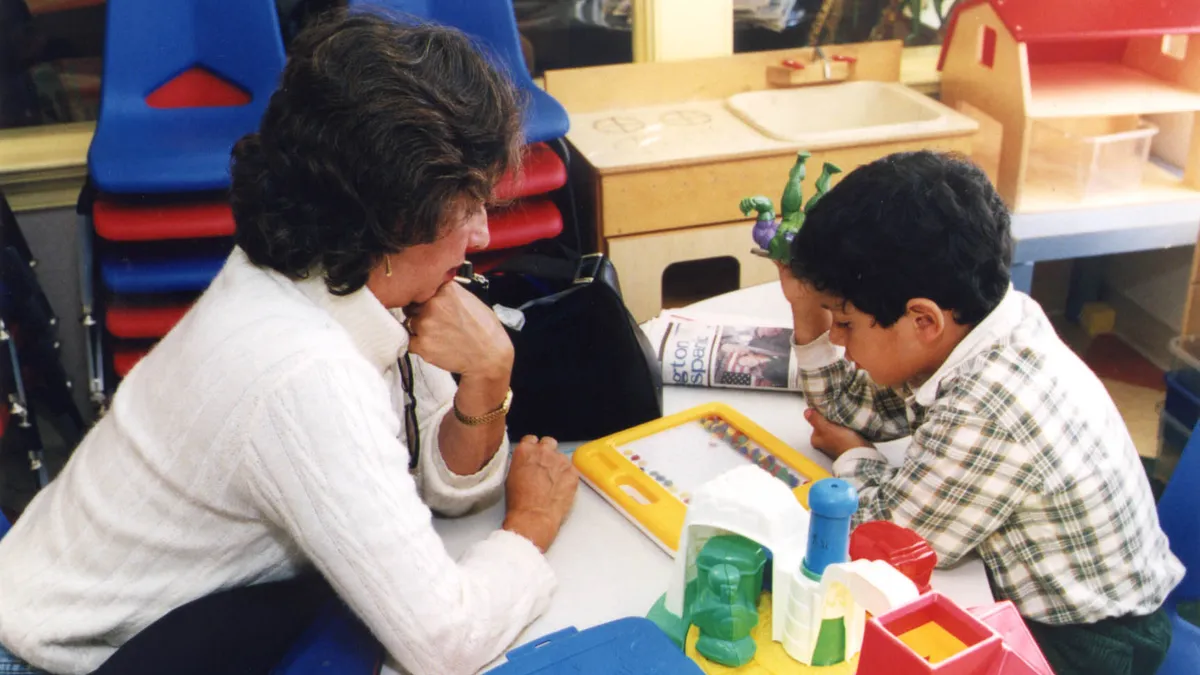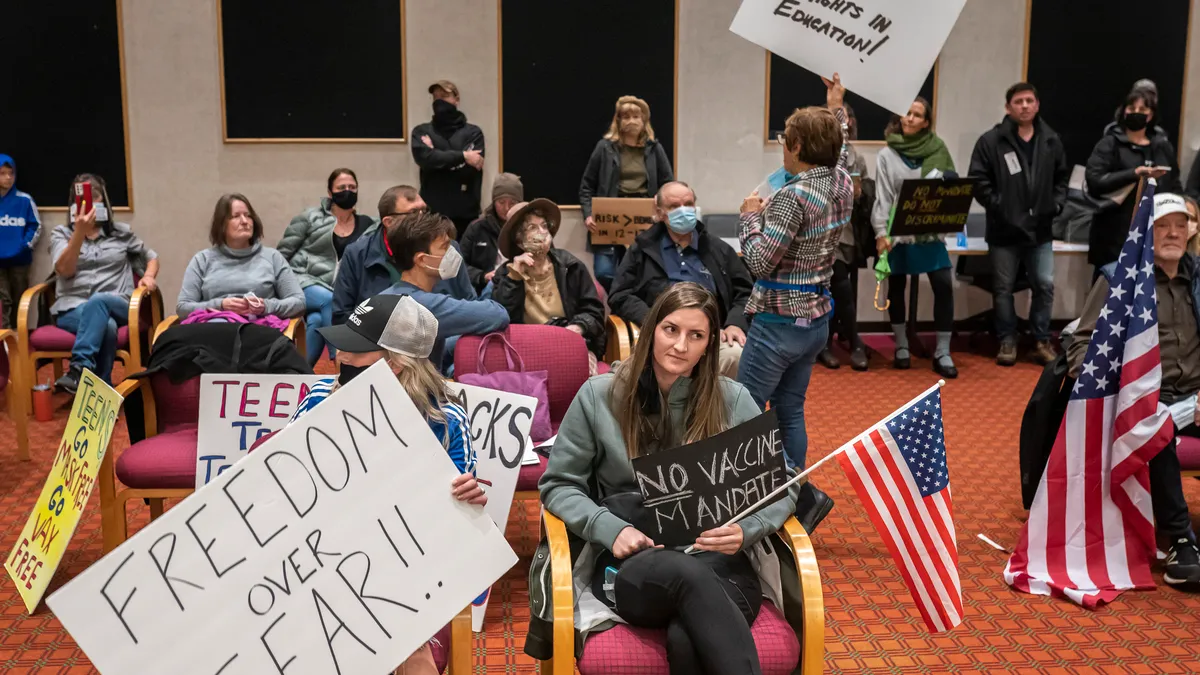Dive Brief:
-
While the number of students qualifying for special education services under the Individuals with Disabilities Education Act grew from 5.67 million in 2011 to 5.83 million in 2014, 49 states reported a shortage of special education teachers and related service personnel in the 2014-15 school year, according an article in District Administration.
-
The nature of the demand for services has also changed with fewer students identified with specific learning disabilities and more identified with autistic spectrum disorders and other health impairments such as mental illness, attention deficit hyperactivity syndrome and epilepsy.
-
In order to meet the demand, administrators are using strategies, such as adding support staff, developing paraprofessionals, targeting interventions, adding online services and seeking more funding.
Dive Insight:
All school districts face special challenges in dealing with the complicated issue of special education. The area requires attention to changing regulations and policy, disproportionate funding challenges and shortages of qualified providers. As the needs of the special education student population shift, there is also the need to make sure that providers have the specialized skills and training needed to deal with specific issues such as autism, speech and language disorders and the growing number of mental health issues that impact the whole school community.
In order to address these issues, schools are trying different strategies. One strategy that seems to be working is adding lower paid support staff to help deal with paperwork and regulation issues that may distract special education professionals from direct student intervention. Another strategy is the increased use of virtual aids to address issues such as speech and language disorders. School districts can also consider working with current staff who show an interest in working in special education to get the time and funding they need to transition into special education fields. For example, Arizona State University is working with the Arizona Department of Education to offer an on-the-job training program for speech-language technicians seeking a master’s degree in speech-language pathology. As the need for special education teachers and paraprofessionals grows, perhaps other such partnerships can develop.
The shortage of special education teachers stands against the backdrop of the larger issue of teacher shortages in general. Until the issues causing this problem are addressed, school administrators will still have to contend with attracting and retaining quality teachers in all fields to their district.







 Dive Awards
Dive Awards





